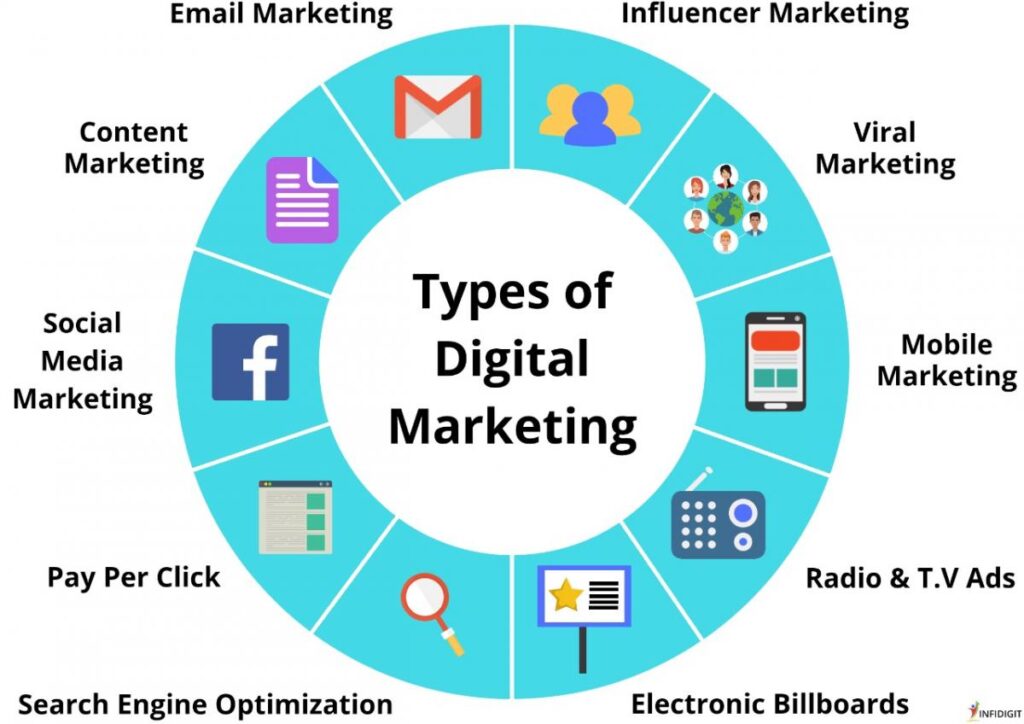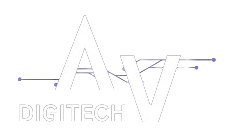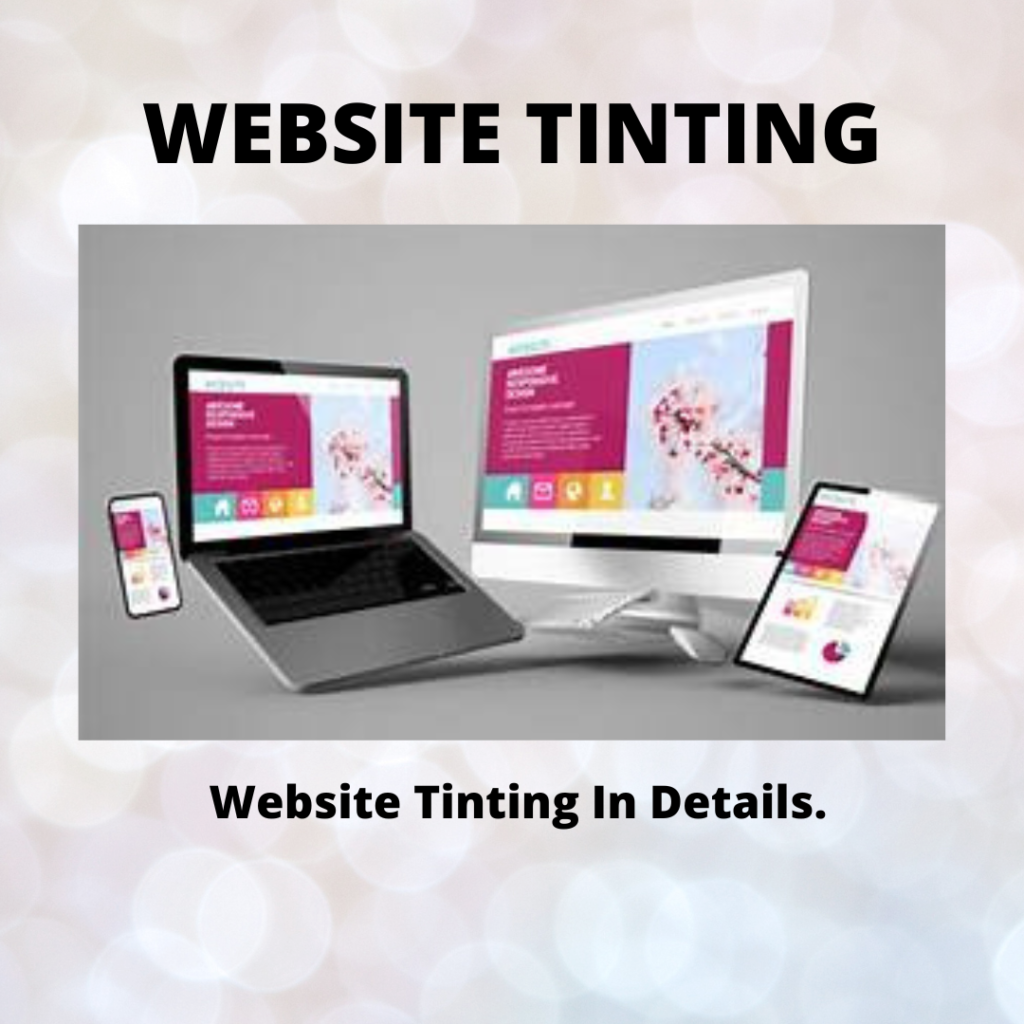If you are looking for ” What is Digital Marketing ? ” So, your search ends here. Here, you find all aspects about Digital or Online Marketing.

Introduction about ” What is Digital Marketing ? “
In the rapidly evolving landscape of business and technology, digital marketing has emerged as a game-changer, reshaping the way companies connect with their target audience. In this blog post, we will delve into the realm of digital marketing, exploring its various types, advantages, and potential pitfalls.
Here I attach a video that also helps you to understand “What is DM? ”
If you want to know about multiple modules of digital marketing. So, visit our site ” Click here “. Here you find all topics of digital marketing and you also whatsapp us for your specific topic and avail notes for free…
Define Digital Marketing or Online Marketing.
Digital marketing refers to the use of digital channels, platforms, and technologies to promote products or services to a targeted audience. Unlike traditional marketing, which relies on offline methods such as print ads or television commercials, digital marketing harnesses the power of the internet to reach consumers in a more personalized and interactive manner.
Types-

- Search Engine Optimization (SEO): SEO is the process of optimizing a website’s content to improve its visibility on search engines like Google. By incorporating relevant keywords, creating high-quality content, and optimizing website structure, businesses can enhance their search engine rankings, making it easier for potential customers to find them.
- Social Media Marketing: Social media platforms like Facebook, Instagram, Twitter, and LinkedIn have become integral components of digital marketing. Companies leverage these platforms to connect with their audience, build brand awareness, and engage in two-way communication. Social media marketing involves creating and sharing content, running targeted ads, and fostering a sense of community around a brand.
- Content Marketing: Content is king in the digital marketing realm. Content marketing involves creating and distributing valuable, relevant, and consistent content to attract and retain a clearly defined audience. Blog posts, articles, infographics, videos, and podcasts are common forms of content marketing that establish a brand as an authority in its industry.
- Email Marketing: Email marketing remains a powerful tool for businesses to communicate directly with their audience. Through personalized and targeted emails, companies can nurture leads, promote products or services, and maintain customer relationships. Email marketing campaigns can be automated, making it efficient for reaching a large audience.
- Pay-Per-Click (PPC) Advertising: PPC advertising involves placing online ads that businesses only pay for when users click on them. Platforms like Google Ads and social media advertising networks allow businesses to bid on keywords relevant to their products or services. PPC campaigns can drive targeted traffic to a website and are particularly effective for short-term promotions.
Advantages-
- Global Reach: One of the key advantages of digital marketing is its ability to reach a global audience. With the internet connecting people worldwide, businesses can promote their products or services to customers beyond geographical boundaries. This opens up new markets and opportunities for growth.
- Cost-Effective: Compared to traditional marketing methods, digital marketing is often more cost-effective. Social media platforms, email marketing, and content creation can be done at a fraction of the cost of traditional advertising channels. This is especially beneficial for small and medium-sized enterprises with limited marketing budgets.
- Measurable Results: Digital marketing provides comprehensive analytics and data that allow businesses to measure the success of their campaigns. Metrics such as website traffic, conversion rates, and customer engagement can be tracked in real-time, providing valuable insights into what strategies are working and where adjustments are needed.
- Targeted Advertising: Digital marketing enables precise targeting of specific demographics, interests, and behaviors. This ensures that marketing efforts are directed towards the most relevant audience, increasing the likelihood of conversion. Platforms like Facebook and Google Ads offer sophisticated targeting options based on user data.
- Interactivity and Engagement: Digital marketing facilitates interactive communication between businesses and their audience. Social media platforms enable direct engagement through comments, likes, and shares, fostering a sense of community around a brand. This direct interaction can lead to increased brand loyalty and customer satisfaction.
Disadvantages-
- Overwhelming Competition: As digital marketing becomes more prevalent, the competition for online visibility intensifies. Standing out in a crowded digital space requires strategic planning and the creation of high-quality, unique content. The sheer volume of information available online can make it challenging for businesses to capture and maintain audience attention.
- Privacy Concerns: The collection of user data for targeted advertising has raised privacy concerns among consumers. As a result, regulations such as the General Data Protection Regulation (GDPR) aim to protect individuals’ privacy rights. Businesses must navigate these regulations carefully to avoid legal issues and maintain trust with their audience.
- Constant Technological Changes: The digital landscape is ever-evolving, with new technologies and platforms emerging regularly. Staying abreast of these changes and adapting marketing strategies accordingly can be challenging for businesses. Failing to keep up with technological advancements may result in a loss of competitiveness.
- Dependence on Internet Connectivity: Digital marketing is entirely reliant on internet connectivity. In regions with limited internet access or during internet outages, businesses may struggle to reach their audience effectively. This dependency on internet connectivity can pose challenges in certain markets or during unforeseen circumstances.
- Information Overload: The abundance of information online can lead to information overload for consumers. With countless brands vying for attention, consumers may become overwhelmed and disengaged. Crafting content that is not only informative but also engaging is crucial to capturing and maintaining audience interest.
Conclusion
Digital Marketing has become an indispensable tool for businesses seeking to thrive in the automated age. By leveraging various digital channels, companies can connect with their audience on a global scale, measure the success of their campaigns, and engage in meaningful interactions. However, it’s essential to navigate the potential disadvantages, such as increased competition and privacy concerns, to ensure a balanced and effective online marketing strategy. As technology continues to evolve, businesses must remain agile, adapting their internet marketing approaches to stay ahead in this dynamic and competitive landscape.
For gaining more information about Website Tinting. So, “click here“



Pingback: What is Website Tinting ? Explain. -
Pingback: How To Start Affiliate Marketing For Free ? -
What is Digital Marketing? Type, Benifit, Disadvantages- avdigitech
[url=http://www.gt585ei1c7ojs33ser6685w6h89mn62gs.org/]uklkbhmfe[/url]
klkbhmfe http://www.gt585ei1c7ojs33ser6685w6h89mn62gs.org/
aklkbhmfe